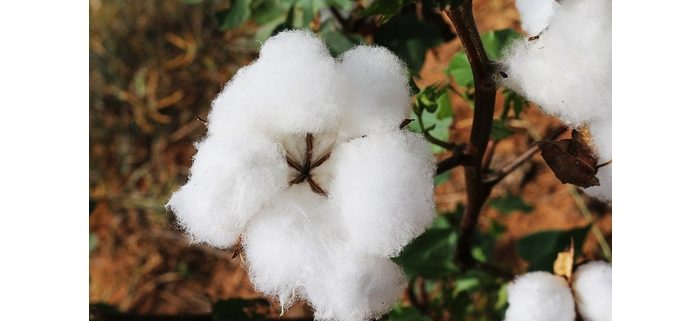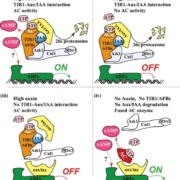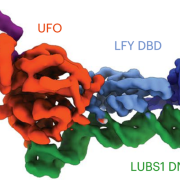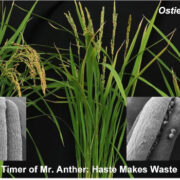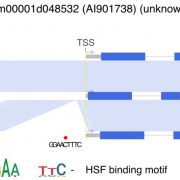Cotton fibers: longer, and more of them
By Na-Na Wang, Yang Li, Yi-Hao Chen, Rui Lu, Li Zhou, Yao Wang,Yong Zheng, Xue-Bao Li
Background: Cotton, one of the most important crops in the world, produces natural fiber materials for the textile industry. Cotton fiber is a specialized and elongated single epidermal cell that is derived from the seed coat. Fiber development is a delicate and complex process lasting about 50 days and goes through four periods: initiation, elongation, secondary cell wall thickening, and maturation. The regulatory mechanism of fiber development is still largely unknown to date and needs to be investigated in detail. In recent years, an increasing number of transcription factors have been reported to function in fiber development of cotton. However, little is known of how the WRKY family of transcription factors participates in regulating fiber development of cotton.
Question: We wanted to know if WRKY transcription factors are involved in regulating cotton fiber development. We tested this by reducing GhWRKY16 transcript levels in upland cotton and observing the fiber phenotypes in transgenic cotton.
Findings: We found that a fiber-preferential WRKY transcription factor, GhWRKY16, positively regulates fiber initiation and elongation. Compared to wild type, GhWRKY16-silenced transgenic cotton had reduced fiber protrusions on the ovule and shorter fibers. During early fiber development, GhWRKY16 directly binds to the promoters of GhHOX3, GhMYB109, GhCesA6D-D11 and GhMYB25 to induce their expression, thereby promoting fiber initiation and elongation. Moreover, GhWRKY16 is phosphorylated by the mitogen-activated protein kinase GhMPK3-1. Phosphorylated GhWRKY16 directly activates the transcription of GhMYB25, GhHOX3, GhMYB109 and GhCesA6D-D11 for early fiber development. Thus, our data demonstrate that GhWRKY16 plays an important role in fiber initiation and elongation, and that GhWRKY16 phosphorylation by GhMPK3-1 is essential for the transcriptional activation of GhWRKY6 downstream genes during fiber development of cotton.
Next steps: Scientists aim to improve cotton yield and fiber quality by genetic manipulation. Our work demonstrates that these traits may be controlled through regulating the expression of target genes (such as those of WRKY transcription factors and others). We hope our work will provide a theoretical basis for breeding higher quality and higher-yielding cotton.
Na-Na Wang, Yang Li, Yi-Hao Chen, Rui Lu, Li Zhou, Yao Wang, Yong Zheng, Xue-Bao Li. (2021). Phosphorylation of WRKY16 by MPK3-1 is essential for its transcriptional activity during fiber initiation and elongation in cotton (Gossypium hirsutum). The Plant Cell. https://doi.org/10.1093/plcell/koab153


